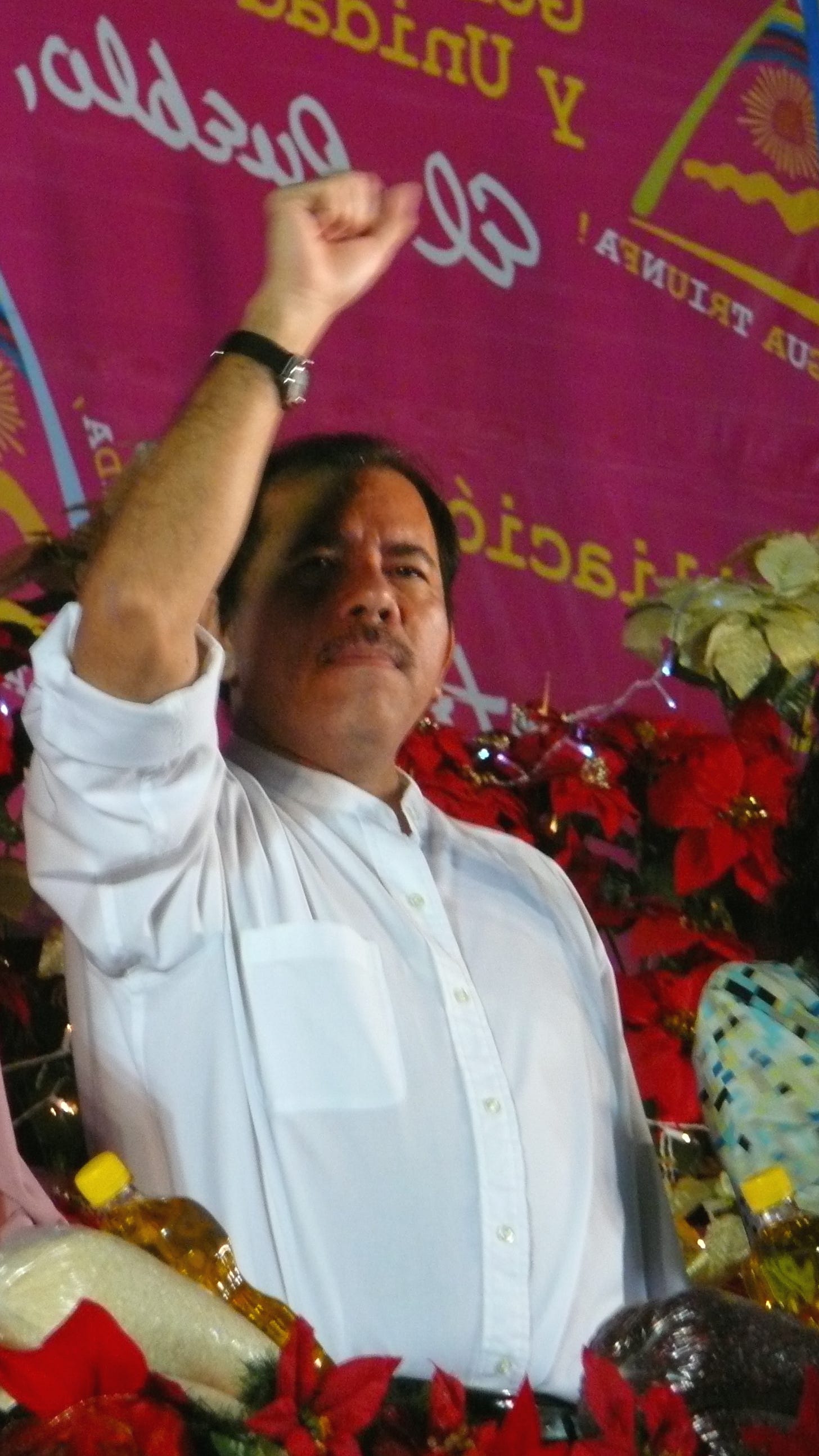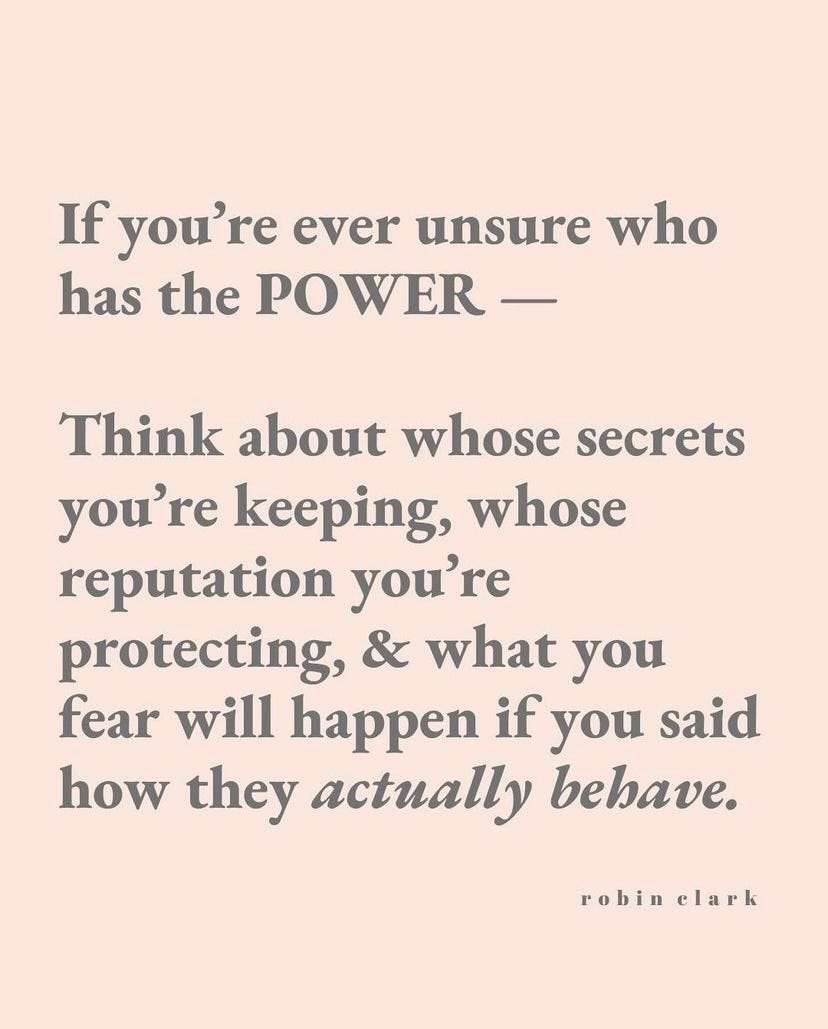Whenever I think about power, my mind always goes first to powerlessness. To the moment the desire for power began.
When I see someone who is supposedly powerful, I see at the same time that person, when they could not change the world or protect themselves. When something happened - and they were unable to change the outcome.
All power, whether wielded justly or nefariously, starts with that moment when the power-wielder could do nothing.
From corrupt ineffective projects, a personal health crisis, being a victim of abuse, to working on entrenched sociocultural patterns of inequality. What I learned, as I entered other countries as an aid worker - supposedly the bearer of progress and change - was not about my power to bring about any progress, but my powerlessness.
I wasn’t someone who felt particularly powerful to begin with. But I thought that there were solutions I was going to be a part of which would help resolve some of the injustice and unevenness so evident in our world. (And like many young aid workers, naively assumed that no one had ever tried to implement before.)

“Absolute power is its own kind of peril - the most dangerous position anyone with the means can get themselves into is one in which no one can say no to them.” ‘As Matthew Perry discovered, there seems to be a fine line between doctor and drug dealer in Hollywood’, Marina Hyde, The Guardian
Getting to know power and powerlessness
This powerlessness led me over the years to become a fascinated student of power, from grassroots movements which have shaped justice to blunt, heavy grabs from the top.
I have analysed power from many sides. From times I was twisted into clueless victimhood in personal relationships or when colleagues misused their seniority for personal gain. In my life as a researcher, where I studied in academic terms the way power plays out in the lives of women and in national land governance systems. Or through observing as a bystander the political shifts in countries where I lived, like Nicaragua and Myanmar.
Over the years, I still find power sits within most human relationships. But it is invisible until you see it. And once you see it you can get more comfortable with it being there.
We tend to think of power as fixed, but it can be changed and reframed.
And by adding to our understanding of what our power can be, opens our potential to how we might access our own.
And for me, it has been helpful to study power. To not be afraid of getting up close - to take a look at it, to understand how it moves. To see the parts of it I own - and therefore how I can leverage them.
What I have learned over the years, is that yes, I am powerless.
But also, I am not.
And one thing I have noticed that powerful people often do is gaslight you about your powerfulness, by implying that you are on the same playing field as them or twisting situations so tight, that you have limited operating room (tone policing is a good example of this).
And the more you know the scope and picture of your real power, the more you can recognise when you are getting played.

Powerful Resources (pun absolutely intended)
Today, in the name of knowing our power, I wanted to share a few resources which have been useful to me.
1. Oxfam’s Empowerment Index
While intended for shaping and measuring women’s empowerment - this framework helps see the different facets and forms power can take.
In particular, it shows us power is not only the colonial, patriarchal, domineering force we are often told it to be.
Instead, it can be collaborative (power with), about self (power from within) and enabled or constrained by our environments.

2. 48 Laws of Power
Yes, this book by Robert Greene was banned in US prisons.
And when you read the examples it shares, it can seem brutal and inauthentic. Most of the case studies are sourced from stories about Ancient Rome or 14th-century courts.
However, in these stories of human power play, we often imagine to be long gone, I found many many examples which illustrated exactly what I was dealing with in a workplace or relationship.
Power infuses so many of our interactions and we are more equipped to deal with that if we are not scandalised by what is happening but instead ready to face and find our own power stance.
If we don’t, those with selfish agendas, are more able to manipulate spaces for their interests.
3. Anatomy of Scandal
There are lots of useful examples in film and media. I like this story because it shows how power can shift over time. (There is both a book by Sarah Vaughan and a Netflix series - I enjoyed them both because I found it interesting to see the different choices they made to explore plot points.
The story illustrates ways that individuals can leverage their power - by playing into an existing power structure or making seemingly small choices that shift it. The character of Sophie, the wife of the perpetrator, illustrates this well. (I won’t share too much detail in case you haven’t read it).
Friends,
We will leave it there for today. Thank you for going with me on this journey into the fascinating topic of power.
I would love to know:
What is your definition of power?
Is it something you think about frequently or that you often encounter in your work or life?
What resources, books, films have helped you understand and own your own power?
Ways to support, endorse and share
We all need a little bit of solidarity and support. I love writing these newsletters for you.
If you enjoy this piece and want to let me know, here are some ideas to offer your appreciation:
Share with a friend or on social media.
Press the little heart button. Easy, free, heart-shaped.
Let me know in the comments!
See you next week,
Catriona






Very interesting topic, Catriona! For me, power has mixed meanings, just like money. It seems good when people use it for good, and it's definitely bad when people use it or hold on to it for bad purposes. A great one to ponder on, and I'll definitely get that book by Robert Greene. 👌
What is this—if not a POWERFUL post!!!! I promise to take my time poring over it again, but for now, I simply must restack it.